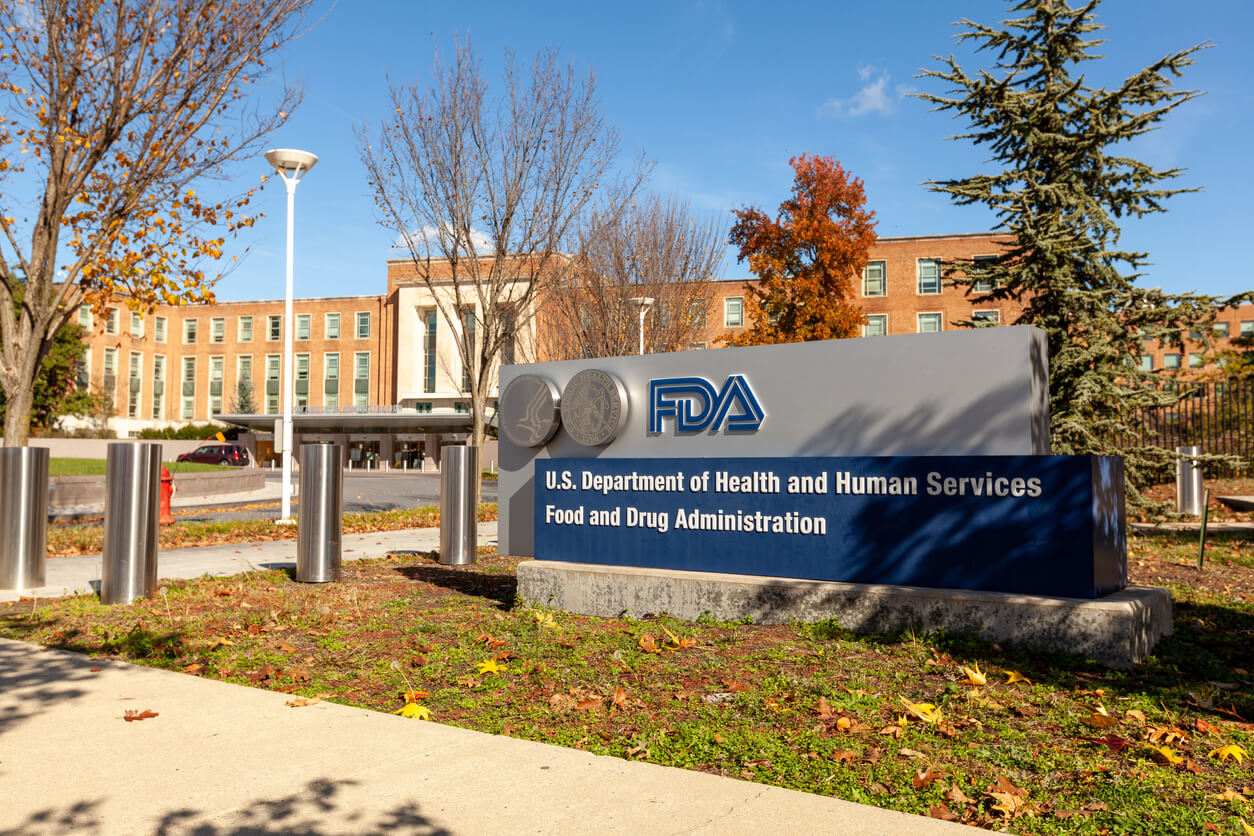FDA Still Plodding Through Vaping Regulations
Editors carefully fact-check all Drugwatch.com content for accuracy and quality.
Drugwatch.com has a stringent fact-checking process. It starts with our strict sourcing guidelines.
We only gather information from credible sources. This includes peer-reviewed medical journals, reputable media outlets, government reports, court records and interviews with qualified experts.

The U.S. Food and Drug Administration has issued Marketing Denial Orders for more than 946,000 flavored vaping products, but on Thursday they postponed any much-anticipated action involving e-cigarettes made by Juul Labs, the industry leader often criticized by public health officials.
The product denials were based on a lack of evidence that their benefit to adult smokers could outweigh the public health threat of their growing popularity among the youth in America.
Many of the products ordered off the market by the FDA are already being sold, while others were just in the application process. They include vaping liquids and e-cigarette products.
Thursday’s announcement was just part of a broad, ongoing review of the vaping industry that eventually could reshape the vaping market.
A year ago, manufacturers were required to submit all vaping products for FDA review and approval, or have them removed from the marketplace.
FDA Slowly Making Progress
An estimated 500 companies submitted more than 6.5 million product applications. Although the FDA was under a court-ordered deadline to review all applications by September 9, 2021, it failed to complete the process.
In August, the FDA ordered JD Nova Group LLC to stop sales of 4.5 million liquid nicotine products for a failure to meet application requirements. An additional 55,000 other products from various companies were also prohibited after FDA review last month.
In 2020, the FDA temporarily restricted the sale of certain sweet and fruity e-cigarette cartridges, believing they were fueling younger smokers.
“We’ve made significant progress. However, there’s more work to be done to complete our remaining reviews and ensure that we continue taking appropriate action to protect our nation’s youth from the dangers of all tobacco products, including e-cigarettes, which remain the most commonly used tobacco product by youth in the United States,” the FDA statement said.
The announcement was attributed to Dr. Janet Woodcock, Acting FDA Commissioner, and Mitch Zeller, director of the FDA’s Center for Tobacco Products.
Products Must Show Public Health
As part of the application process, manufacturers had to show evidence demonstrating how the products were in the interest of public health. For example, the product might convince cigarette smokers to switch to a less harmful option.
The FDA would also weigh that against the product’s appeal to youngsters and adults who have never smoked.
Vaping by young adults already had dropped significantly from a year ago, partially because of new federal restrictions raising the legal purchase age to 21 and limiting the sweet and fruity products.
The agency said Thursday it had acted on 93% of the applications submitted by the filing deadline.
Waiting for Juul E-Cigarettes
To the disappointment of many, the FDA has not acted on any applications made by Juul, often the brunt of criticism from parents, anti-tobacco advocates and politicians over its high-nicotine products.
Juul is facing lawsuits from 13 states and the District of Columbia, mostly over allegations that it has played a major role in the vaping epidemic, marketing its products to minors.
The company, however, submitted only tobacco and menthol-flavored e-cigarette refill pods for FDA review, according to numerous sources.
Juul has been the vaping market leader since 2018, holding a 50% share of the $9 billion U.S. market.
Earlier this year, they settled one of many lawsuits by agreeing to pay $40 million to the state of North Carolina.
“The FDA is still evaluating applications for JUUL’s products and has been devoting tremendous resources to these and other applications for the millions of products it has received,” FDA spokesperson Alison Hunt told DrugWatch.com.
FDA officials already have told some manufacturers that authorized products will likely come with strict marketing and sales measures intended to restrict access to teenagers. Company marketing campaigns also will have to pass FDA approval.
Some public health groups and lawmakers have asked the FDA to ban all sweet and fruity e-cigarettes and consider using nicotine concentration caps on all products. The FDA, however, has insisted on reviewing each product individually instead of issuing universal rules.
For decades the FDA has regulated the sale and marketing of traditional tobacco products, such as cigarettes, but only recently has it begun scrutinizing the vaping industry.
“We continue to work expeditiously on the remaining applications, many of which are in the final stages of review,” the announcement stated. “As we have said before, the burden is on the applicant to provide evidence to demonstrate that permitting the marketing of their product meets the applicable statutory standard.”